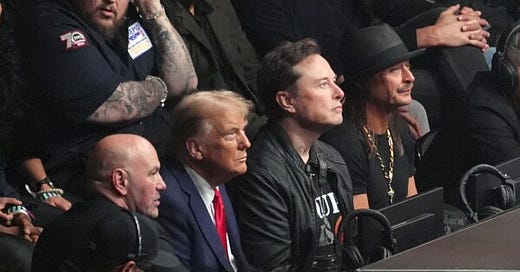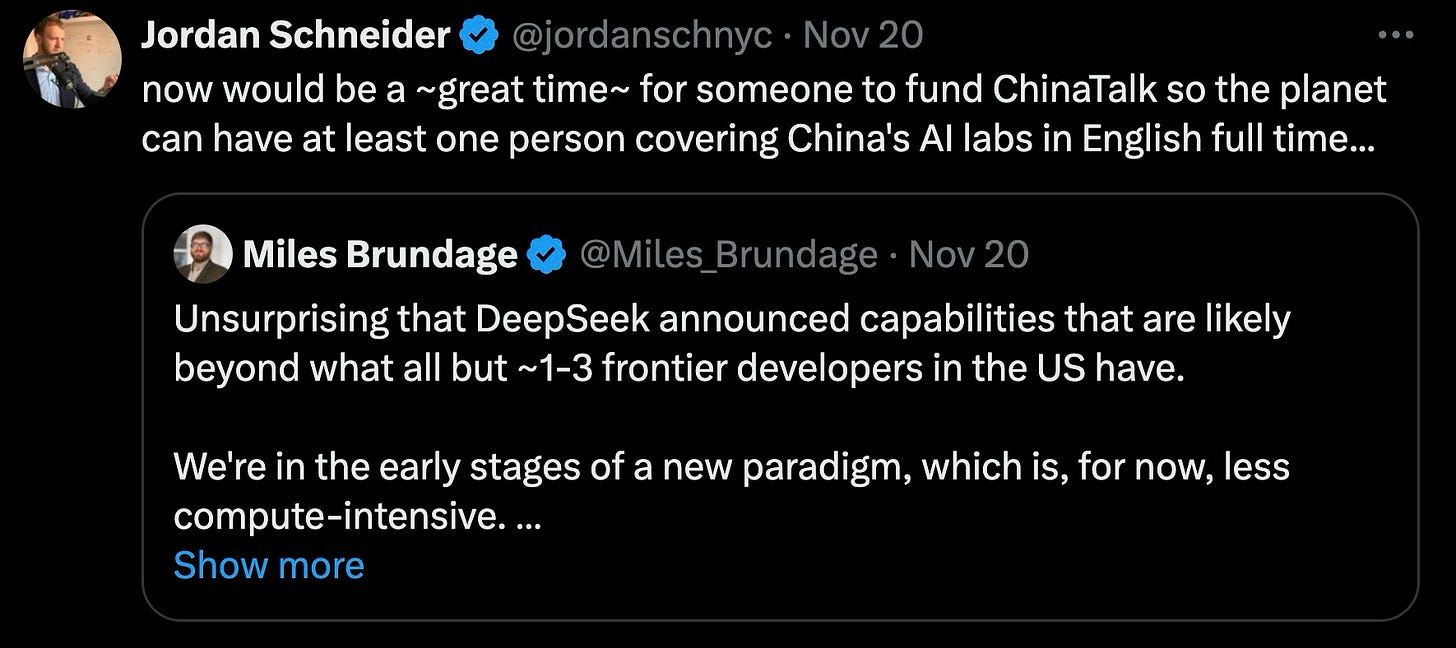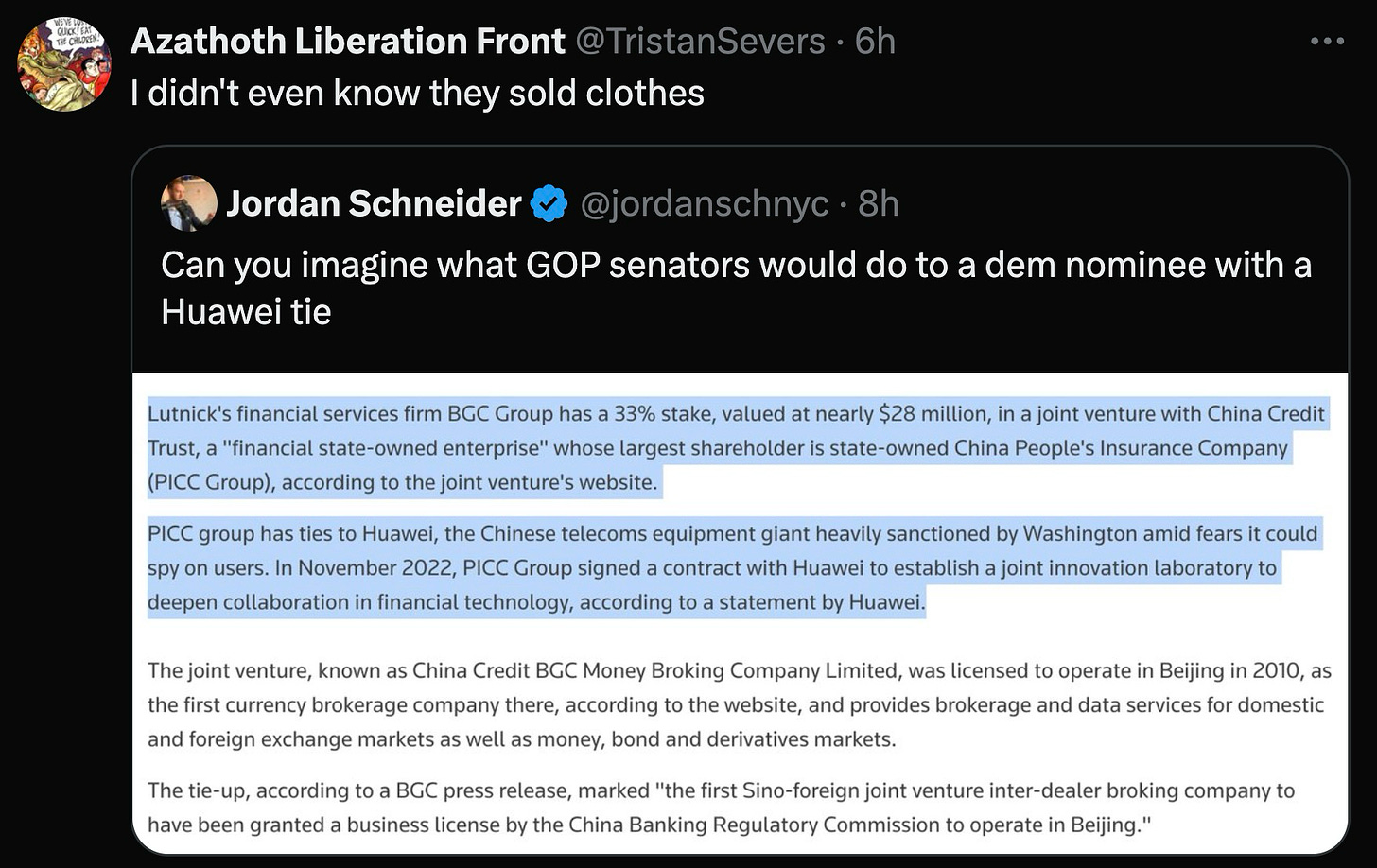Mark Witzke is a China analyst and nonresident scholar at the UC San Diego 21st Century China Center. See more on US-China relations and unexpected connections between the countries like the UFC on his Twitter or Bluesky @mkwitzke.
As Trump’s return to the White House draws nearer, China watchers are paying close attention to his cabinet picks. One underrated wild card in the relationship might actually be the interests of a sports league once condemned by Republicans as “human cockfighting”.
This past weekend, President-elect Trump walked out in MSG in New York in a moment of triumph to attend a mixed martial arts (MMA) event. It was his first public appearance since the election and served as a sort of coronation ceremony where popular MMA fighters like Jon Jones and Michael Chandler gave tribute to the new President.
Formerly a foe of the Republican party due to John McCain’s staunch opposition to the league, the UFC now appears to be a MAGA PR arm. Trump has frequently appeared at UFC events in times of intense political pressure. After January 6th, Trump made one of his first major public appearances at UFC 264. Days after his arrest, he appeared defiantly at UFC 287 with Mike Tyson. Trump used the UFC 302 event to launch his TikTok account, just two days after receiving a guilty verdict in his hush money trial.
Trump’s relationship to the UFC goes all the way back to 2001, when the UFC was relegated to backwater venues and struggled to dispel the notion that it was too dangerous to be legal. At that time, according to sports journalist Karim Zidan, “Donald Trump took a chance on the UFC in and allowed the organization to host two consecutive events at his Atlantic City casino, the Trump Taj Mahal. And the UFC has really been loyal to him ever since then.” At all three of his nominations, Dana White spoke for Trump at the RNC and has helped him make inroads with new media and popular fighters.
What might Dana White expect in return? For starters, easing visa restrictions on fighters with links to controversial figures like Ramzan Kadyrov. But White, with his global operations, surely has his eye on larger payouts. Prior to the pandemic, the UFC had big plans for China. They held events in Macau in 2012 and 2014 and revved up activity in the mainland a few years later with events held in Beijing, Shanghai, and Shenzhen in 2017, 2018, and 2019.
While the earlier events focused more on foreign fighters, the 2019 event in Shenzhen was headlined by Hebei native, Zhang Weili, where she became the UFC’s first female Asian champion. Upon her victory she took the mic and spoke with her limited English, "My name is Zhang Weili!...I'm from China. Remember me!" She has since gone on to lose and then regain her champion status, most recently defending her belt at UFC 300 against her countryman, Yan Xiaonan. Chinese state media spoke approvingly of the event and noted the growing interest towards the sport in China.
Other moves taken by the UFC to grow their market in China included establishing a training center in Shanghai in 2019, inking streaming content distribution deals with Migu (a part of China Mobile), and cultivating talent through its Road to UFC program that gives local fighters the chance to make it to the UFC. The UFC even signed a deal with the Chinese Olympic Committee to help train athletes. In an interview, Kevin Chang, head of UFC Asia, said that China was a priority for the UFC, that they thought carefully about the differences in promoting on Chinese social media platforms versus in the US and they had already gained millions of fans.
But since the pandemic, there have been no major UFC events in China — an attempt to hold an event in Shanghai at the end of last year was abruptly canceled for no apparent reason. This Saturday, however, the UFC will return to China (Macau) and hold their first event there since 2019, marking its return to a market with immense growth potential. While other companies are trying to figure out how to pull out and decouple, Trump’s favorite sport league will have a continued interest in smooth relations between the US and China.
This sports exchange may bring to mind the old “ping pong diplomacy” where in the early 1970s, an international exchange of table tennis players helped open the door for a renewal of US-China relations. In a new era for the US and China where the relationship will almost certainly get stormy, could a sports league where people punch each other in the face serve as an unexpected circuit-breaker?
It may seem silly, but so was ping pong diplomacy. Perhaps Chinese officials make an appearance at a US event or push for more mainland events in an attempt to appeal to Trump. Xi Jinping himself has long had a personal interest in sports, with plans to make China a sporting superpower and a desire to make Chinese men more “manly.” See ChinaTalk’s feature on the CCP masculinity crisis.
Dana White and the UFC might not have a particular interest in all the nuts and bolts of Trump’s China policy with regards to tariffs or investment screening, but he certainly would be loath to see total decoupling of US business interests from China. Dana, along with Elon Musk, Jeff Yass, and Howard Lutnick may well serve as the second term’s version of Gary Cohn and Steve Mnuchin.
Tweets of the Week
Evening at Tagonoura, by Kawase Hasui, 1940








We used to hear about Elon vs Zuck getting in the octagon, what's the best Chinese tech entrepreneurs matchup?